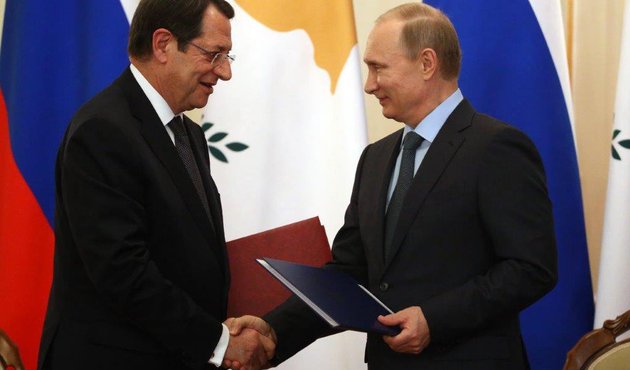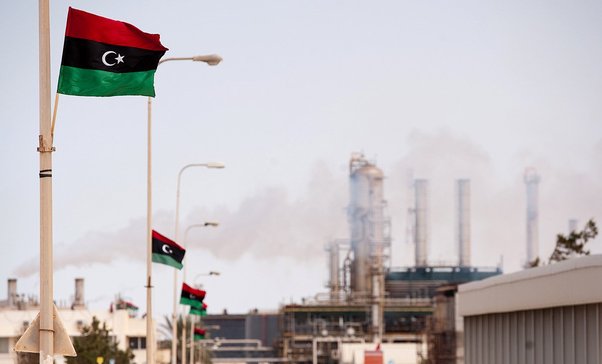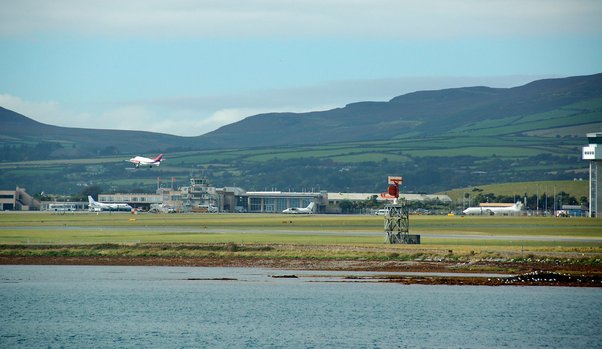A law firm Nicos Anastasiades founded – and left just before assuming the presidency – moved millions of dollars among shell companies that were deeply entwined with a secretive and controversial system for moving money around the world
As president of Cyprus, Nicos Anastasiades has worked to strengthen his country’s relationship with Russia while dealing with international criticism of Cyprus’s lax financial and money laundering controls.
But several years before his 2013 election, a law firm he established and co-owned, and in which he was a partner at the time, was arranging business deals linked to friends of Russian President Vladimir Putin, the infamous Magnitsky scandal, and a financial scheme that has been used to launder vast amounts of money.
Anastasiades stepped away from the firm, called Nicos Chr. Anastasiades and Partners LLC, just as he was ascending to the presidency. But both of his daughters are partners, and he still has a private office in the building (where only one other affiliated firm is a co-tenant).
Records from the defunct Lithuanian Ukio Bankas, obtained by OCCRP and 15min.lt and analyzed by OCCRP, Global Witness and IRPI, reveal the law firm’s work executing complex deals that moved Russian money to and from shell companies created by and associated with the firm.
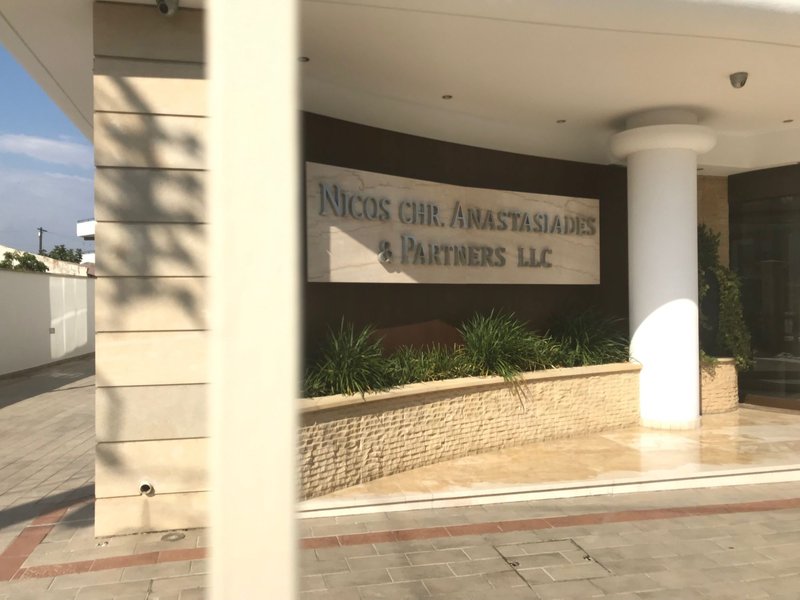
Two of those shells – Batherm Ventures Ltd. and Matias Co Ltd. – appear to be deeply entwined with the Troika Laundromat, a network of shell companies that operated from 2006 to 2013.
So-called "laundromats" are complex systems for moving money that allow corrupt politicians, organised crime figures, and wealthy business people to secretly invest their ill-gotten millions, launder money, evade taxes, and fulfil other goals.
The Troika Laundromat is believed to have moved at least $4.6 billion. Batherm and Matias sent more than $323 million into this system.
The leaked documents do suggest that Alexander Abramov, a Russian billionaire, was behind both companies, and that he used them to buy a major Russian energy concern at an enormous discount. Abramov later received a Cypriot EU passport with the help of the Anastasiades law firm.
The documents do not show any specific evidence that the firm or any employees broke any law or committed any crime.
The transactions do raise questions about dealings between Anastasiades’ law firm, his associates, and Russian financial money laundering networks used for criminal activity. They also reenforce long-standing concerns about relationships that some say have compromised Cyprus’s independence.
“Russian money laundering, admittedly the biggest threat to the European financial system, has been funnelled historically through the Baltics and Cyprus with the latter assuming a more fundamental role as a conduit for dirty capital flows,” said Roman Borisovich, a former banker and leader of ClampK, a UK-based anti-corruption organisation.
“The ongoing dismantling of this system will have a devastating effect on the finance and economy of both. However, if in Latvia the damage was done primarily by the Russian and foreign bankers, in Cyprus the problem is homegrown.”
“It is the Cypriot lawyers, accountants, and other corruption enablers who destroyed their island’s financial system from within, and their compatriots should hold them responsible for these treasonous acts,” Borisovich added.
Nicos Anastasiades did not respond to requests for comment.
Roots of a poisonous tree
Batherm Ventures Ltd. was registered in the British Virgin Islands in late 2006. Its purpose as a vehicle for the president’s former law firm can be discerned in several ways: Batherm’s director, Stathis Lemis, is a managing partner of the firm; its other managing partner, Theophanis Philippou, also appears in the Batherm documents as Lemis’ authorized signatory; and the transfers Batherm made were apparently effected by the law firm itself.
When Batherm was liquidated in 2017, a senior lawyer at the firm was appointed as its liquidator.
(Neither Lemis nor Philippou responded to requests for comment.)
From August 23, 2007 through June 17, 2008, Batherm transferred more than $96 million in eight installments to another British Virgin Islands shell company, Delco Networks S.A.
Lithuanian bank records show the transfers were made under the terms of a one-year “participation agreement” that directed Delco to invest the money in a laundry list of financial vehicles.
Delco has previously been reported by OCCRP as being part of a large offshore money laundering network.
Delco is noteworthy for several reasons.
It is one of the approximately 75 companies that make up the Troika Laundromat, forming part of the vast money transfer system.
Among the transactions Delco handled was the 2008 purchase of 70,000 shares in Russian energy giant Rosneft from International Media Overseas.
That company is linked to famed cellist Sergei Roldugin, who is known to be an old friend of Putin and is widely considered a proxy holder of wealth for the Russian president. The Roldugin-linked company received more than $800,000 in the transaction.
Delco also helped shift $2.2 million stolen from the Russian government in the 2007 Magnitsky affair.
This infamous tax fraud, in which a total of $230 million was stolen, was exposed by Sergei Magnitsky, a Russian lawyer who was subsequently arrested and died in prison at the age of 37 after being mistreated by the same police officers he had implicated in the theft.
Russian officials sought to pin the blame for the fraud on Hermitage Capital, an investment fund and asset management company, but subsequent investigations by OCCRP and others have revealed that Hermitage was in fact the victim of the scam.
Enter Abramov
Documents leaked along with the Lithuanian bank records shed light on the probable ownership of Batherm, the company that had sent money to Delco, and other companies under its umbrella.
One of these subsidiaries, Matias Co Ltd., was created with the help of Anastasiades’ former law firm.
The service provider that served as its initial shareholder and director, Imperium Nominees Ltd., is today owned in equal proportion by Philippou and Lemis, the law firm’s managing partners, as well as President Anastasiades’ two daughters, Elsa and Ino.
Neither Elsa nor Ino, nor a representative of Imperium Nominees, responded to requests for comment.
According to a leaked sales contract, Batherm and Matias jointly agreed in February 2007 to buy Energostroyinvest-Holding, which was then Russia’s largest builder of electrical networks and thermal power plants.
The $220 million purchase price – paid to Gotland Industrial Inc., one of the three core companies of the Troika Laundromat – was far below Energostroy’s estimated value of $2 billion just four years later.
At the time, Energostroy owner Andrey Rappoport identified the buyer as Russian billionaire Alexander Abramov, suggesting that Abramov is behind Batherm and Matias.
The Ukio records confirm both Abramov’s involvement and the facilitation by the Anastasiades law firm.
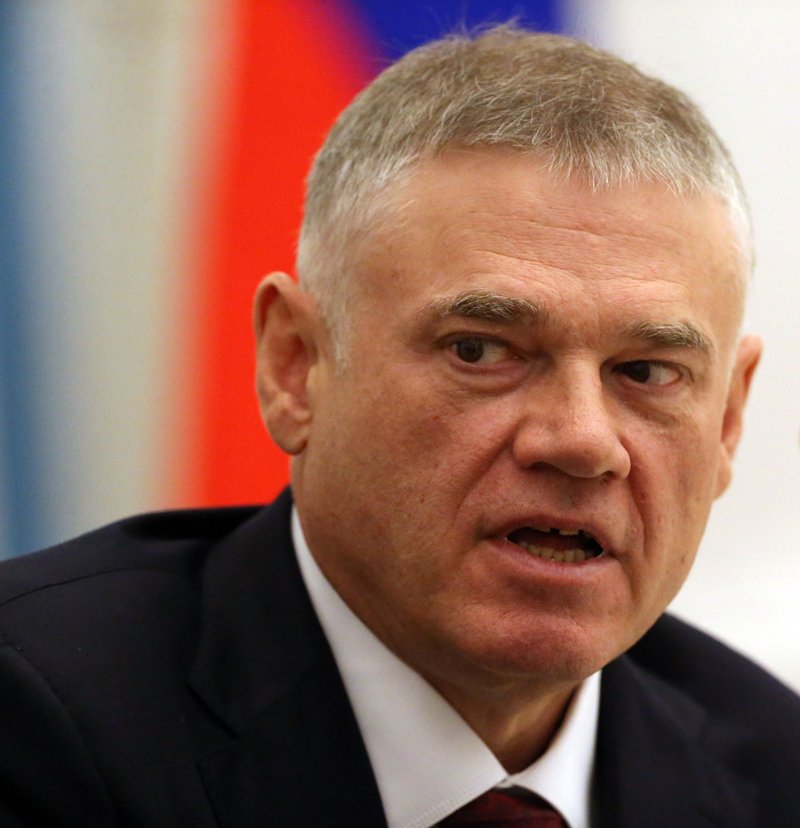
Abramov, a former scientist, made his millions exporting metal and coal in the 1990s and is now the chairman of Evraz, a major international steel producer with headquarters in London, in which he owns a substantial stake.
Attached to the Energostroy sale contract is a deed of guarantee saying that Crosland Global Ltd, a Cypriot company then owned in part by Abramov, would underwrite certain Batherm and Matias obligations.
A few months after the Energostroy purchase, Matias also purchased SoyuzEnergoEngineering, another major Russian energy company, for an unknown amount.
Abramov, who was at one time Russia’s richest man, has been a client of Anastasiades & Partners.
According to an official who used to work at the Cypriot Interior Ministry and asked not to be named because the matter is politically sensitive, the firm oversaw the billionaire’s application for Cypriot citizenship.
On July 21, 2010, Abramov was awarded a Cypriot EU passport “in exchange for his service to the Republic of Cyprus.”
His new citizenship gave him freedom of movement, allowing easier access to the European Union’s financial sector as well as the opportunity to avail himself of all the legal and social rights that come with European citizenship.
The Cypriot Interior Minister at the time said Abramov’s “naturalization is in the public interest,” but such “Golden Visa” programs have since been scrutinized by the European Commission which, after a year-long study, concluded that residency – and citizenship-for-sale programs expose the EU to money laundering, corruption and tax evasion risks.
Cyprus, and all EU Member States that sell residency and citizenship, have since been tasked with setting EU-wide security and transparency standards to clean up the schemes.
Neither Abramov nor Rappoport responded to requests for comment.
More Russian ties
President Anastasiades’ former law firm is not alone in its connections to Russian oligarchs.
Theodoros Parperis is a key figure in the Cypriot economic governance sector. He is a senior executive of the country’s PwC office and a past chairman of the Institute of Certified Public Accountants of Cyprus, which regulates the accounting profession and supervises compliance with anti-money laundering legislation.
At the time of the Energostroy deal, Parperis was an alternate director of Crosland Global. He also was, and remains, an alternate director of Crosland Limited, which until 2014 held shares in Crosland Global.
The ownership of Crosland Global has shifted in recent years from Russian billionaire Alexander Abramov to his business associate, Alexander Frolov. Frolov, Abramov, and Russian billionaire Roman Abramovich own London-based mining and steel giant Evraz.
Parperis is also an alternate director of Wizview Ltd, a Cyprus-registered company entirely owned by Frolov.
Neither Parperis nor Frolov responded to requests for comment. Two directors of Crosland Global also did not respond. A representative of PwC Cyprus wrote that the firm “cannot comment on client matters” for reasons of confidentiality, and said it “applies all relevant laws and regulations … on combating money laundering.”
Cyprus under pressure
OCCRP and Global Witness’ revelations linking President Anastasiades to the Troika Laundramat provide important new context to his decisions to strengthen relations with Putin while seeking to deflect international criticism of his country’s lax financial controls and reputation as a haven for Russian money laundering.
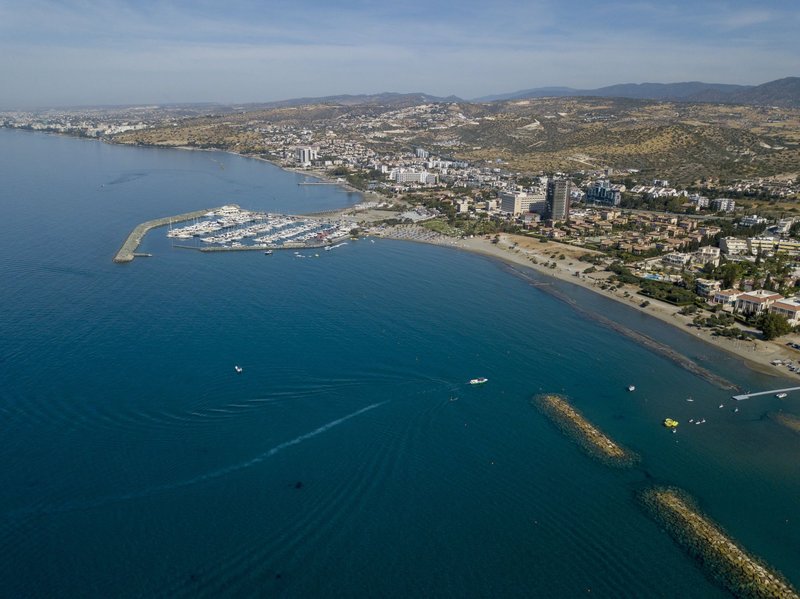
Under Anastasiades, Cyprus was among the EU member states that initially opposed sanctions against Russia following its 2014 annexation of Crimea.
Cyprus also cooperated with Russia in what was seen as a politically motivated investigation of Hermitage Capital founder Bill Browder, before reluctantly agreeing in October 2018 to suspend cooperation amid international political pressure.
Cypriot ties with Russia have been problematic for Anastasiades since the start of his presidency. At the time, other Eurozone members were refusing to help bail out the island nation’s undercapitalized banks on grounds that they were laundering Russian funds.
Anastasiades was forced to accept onerous bailout terms for depositors that also included the introduction of stronger anti-money laundering regulations.
In a scandal early in his first term, members of the president’s extended family managed to wire 21.5 million euros abroad just days before the culmination of the banking crisis, leading to speculation that they had acted on a tip.
Customers of Anastasiades’ law firm also managed to move their money out of Cyprus’s two largest banks before the tough bailout terms took hold.
The EU and the United States continue to exert pressure on Cyprus to further tighten regulations in response to perceived closeness to Russia.
Time is running out for Cyprus and its Treasure Island business model: by spring 2020 it must implement the 5th Anti-Money Laundering Directive, which includes the creation of a public register of beneficial ownership which will name the real people behind the companies registered there.
The British Virgin Islands – where both Batherm and Delco were registered – are also on notice. Following legislation passed in the UK, they must open up their corporate register for the world to see by 2023, but they are fighting back.
It remains to be seen where new UK Prime Minister Boris Johnson’s allegiances lie, given the profits to be made from servicing oligarchs in both the British Virgin Islands and the UK.
